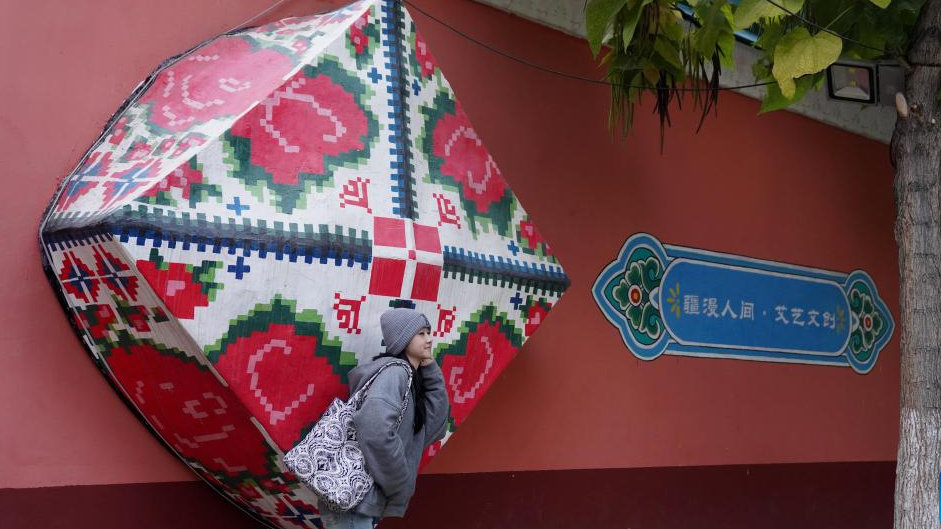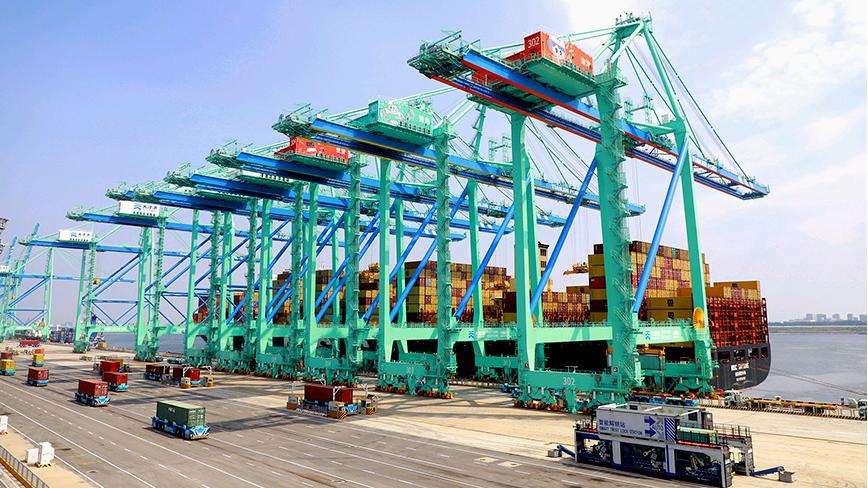China's rise as a dual Olympic host and global sports power
BEIJING, Oct. 4 (Xinhua) -- When reflecting on the remarkable growth of Chinese sports over recent decades, few events better represent this progress than the historic ascent of Mt. Qomolangma via the north slope by Chinese mountaineers in 1960. This achievement symbolizes a national spirit of overcoming obstacles and striving for new heights.
The Paris 2024 Olympic Games serve as a modern testament to this enduring drive, with China achieving an unprecedented milestone by securing 91 medals, including 40 golds - marking its best performance at an overseas Summer Olympics.
Over the past 75 years, China's sporting journey has been characterized by numerous breakthroughs. This journey reflects not only athletic achievements but also a deep commitment to competition and national pride.
ATHLETIC ACHIEVEMENTS
In 1956, Chen Jingkai made history by setting a world record in weightlifting, becoming the first Chinese athlete to break a world record just seven years after the founding of the People's Republic of China. With minimal infrastructure but significant encouragement from the country, this achievement was remarkable.
Three years later, Rong Guotuan won the men's singles title at the 25th World Table Tennis Championships, becoming China's first world champion.
In 1958, China formally withdrew from the International Olympic Committee (IOC) in protest of Taiwan's inclusion. However, in the 1970s, China's leaders began to recognize the benefits of greater international involvement and sought readmission to the IOC.
China's return to the Summer Olympics came in 1984 in Los Angeles, after the IOC restored the Chinese Olympic Committee as a full member in 1979. At the Games, shooter Xu Haifeng earned China's first-ever Olympic gold, with the national anthem "March of the Volunteers" played in an Olympic stadium for the first time. "During that era, our country needed a boost in our national pride," Xu later recalled.
Another iconic moment came when the Chinese women's volleyball team claimed gold at the 1984 Olympics by defeating the United States. They went on to achieve an unprecedented run of five consecutive global titles between 1981 and 1986.
Despite modest expectations before the 1984 Games, China finished an impressive fourth in the medal table, winning 15 golds. These performances inspired a generation of athletes and ignited a fervent interest in sports throughout the nation.
Following these achievements, China significantly increased investment in sports infrastructure, talent development programs, and international sporting events, all aimed at establishing the country as a global sports power. A defining moment came in 2008, when Beijing hosted the Summer Olympics, and the host nation topped the medal tally with 48 golds out of 100 total medals.
Although traditionally stronger in the Summer Games, China was a latecomer to winter sports. It wasn't until 2002 that the country claimed its first Winter Olympic gold, with Yang Yang winning the women's 500m short track speed skating final. By 2022, China had earned nine gold medals at its home Winter Olympics, following a significant investment in winter sports development.
As China continues to rise as a sports power, its athletes' success on the global stage embodies the nation's dedication to excellence and its pursuit of greatness. Meanwhile, younger generations of athletes are more expressive than their predecessors, reflecting broader societal changes in China. Their self-confidence mirrors the growing assurance of Chinese society itself.
"While the medals signify China's 'hard power,' the athletes' poise, confidence and the unity displayed during the Games are a testament to China's burgeoning 'soft power'," read a commentary from Pakistan Today.
SPORTS FOR ALL
Since the founding of the People's Republic of China, the government has prioritized sports as a means to promote a healthy lifestyle. To encourage public health, China introduced its first set of radio gymnastics in 1951, broadcast daily so people nationwide could follow along.
In 1995, the State Council implemented "The National Fitness Program," aimed at embedding sports and physical activities within society. As a result, the accessibility and quality of fitness facilities improved, and public enthusiasm for sports grew.
To celebrate the success of the 2008 Beijing Olympics, August 8 was designated as "National Fitness Day," encouraging widespread participation in sports. By 2014, fitness for all had been established as a national strategy, with increased resources directed toward this effort.
Hosting the 2022 Winter Olympics fueled an ambitious goal to engage more than 300 million Chinese citizens in snow and ice sports. By the end of 2022, over 3,000 schools had integrated winter sports into their curriculum, including theory-based classes and practical sessions. In the colder northern regions, primary and middle schools incorporated winter sports into physical education, while areas with little or no snow promoted "dry land" practice of these sports.
With these efforts, the number of people regularly participating in sports has risen to over 37% of the population. The growth of sports like road running and cycling has been especially rapid; a 2023 report on China's road running events indicated that 699 races were held nationwide, attracting over 6.05 million participants.
"In an era where sedentary lifestyles have contributed to health issues like obesity and diabetes, such increases in physical activity can only be positive," said Chang Chun, a professor at Peking University's Department of Social Medicine and Health Education.
GLORY OF DUAL OLYMPIC HOSTS
China's contributions to global sports extend beyond athletic achievements; the country has played a pivotal role in shaping modern international sporting events through successful hosting. In 1908, Chinese scholars, inspired by the modern Olympics, advocated for the country's participation. However, China faced political and social challenges, making it unprepared to compete internationally at that time.
China's first Olympic participation came in 1932 in Los Angeles. After the founding of the People's Republic of China in 1949, the country's focus on sports increased, and by the 1980s, China aimed to host the Olympics. Beijing's first bid for the 2000 Summer Olympics was unsuccessful, losing to Sydney by two votes, but the determination persisted.
China's perseverance was rewarded on July 13, 2001, when Beijing won the bid to host the 2008 Summer Olympics. The Games, often referred to as China's "coming-out party," highlighted the nation's modernization and its potential as a global player. World-class facilities and meticulously organized events like the opening ceremony showcased China's capacity to host major international competitions.
Beijing 2008 left lasting legacies for China, significantly impacting the development of sports in the country. These foundations were built upon during the preparations for the 2022 Winter Olympics. Despite the challenges posed by the COVID-19 pandemic, the Beijing 2022 Games were held successfully, highlighting China's ability to organize large-scale international events in difficult circumstances. The event's diverse participation - featuring athletes from 91 countries and regions, including tropical nations without winter sports traditions - showcased the unifying power of sports.
The 2022 Games set new benchmarks for the Olympic movement, emphasizing "green Olympics" through the use of carbon-neutral technologies, energy-efficient venues, and reforestation efforts.
By hosting both the Summer and Winter Olympics, China has demonstrated its capability as a powerful participant and a visionary host in the global sporting community. As IOC President Thomas Bach noted, "Having the world's most populated nation in the Olympic movement has proved a huge success story for China and the Olympic movement in recent years, and you can see the growing contribution of China to the Olympic movement." China's role as a key player in international sports continues to solidify.
Photos
Related Stories
Copyright © 2024 People's Daily Online. All Rights Reserved.









